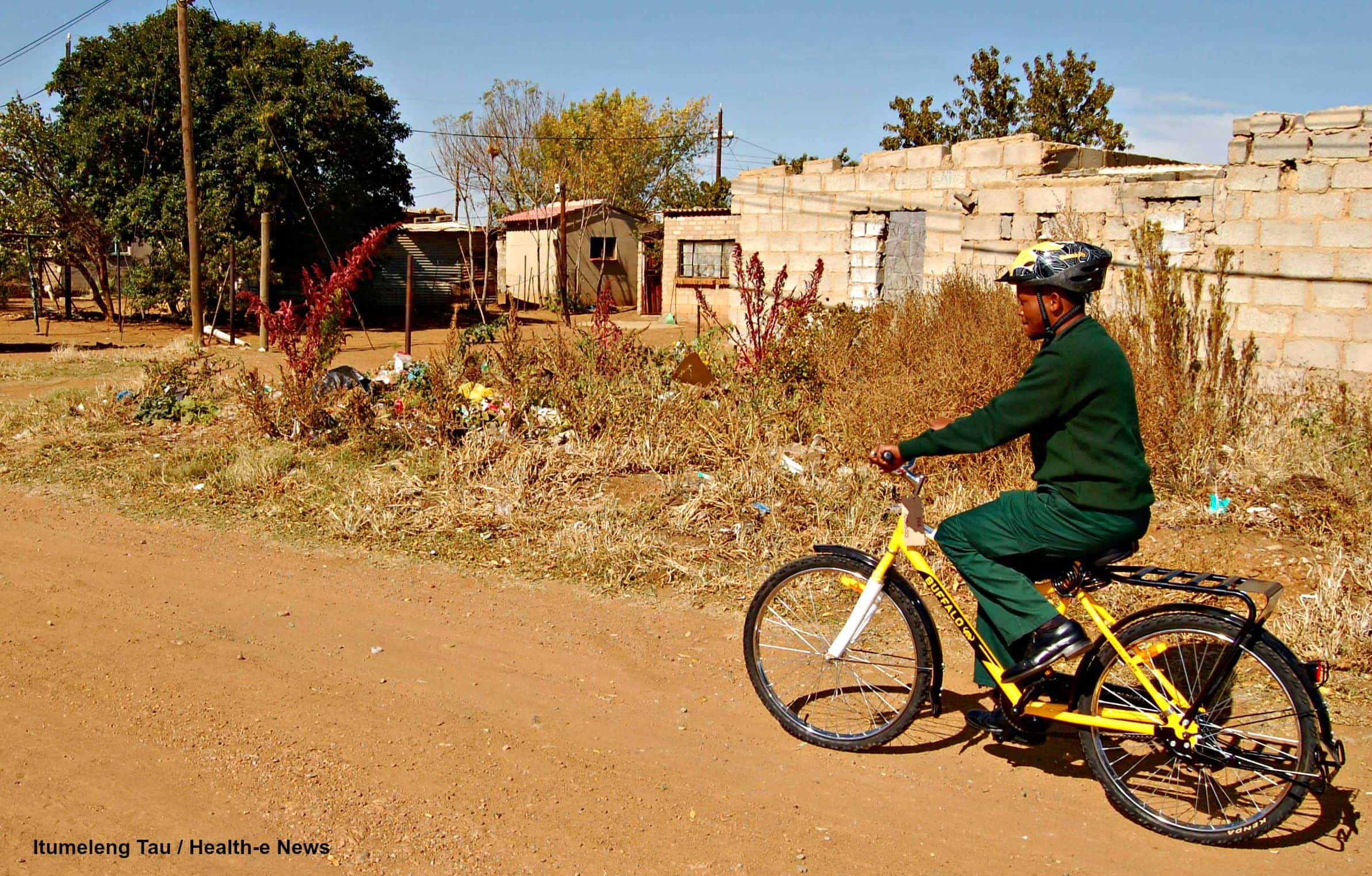Medicines go missing in Mpumalanga


Duduzile Ngwenya’s epileptic son risks brain damage if he does not get medicine to control his seizures, but his mother has battled since January to get the medicine.
According to Health-e News Service’s citizen journalists, who monitor the supply of medicines in local clinics every month, monthly stock-outs have occurred at health facilities since February.
In March, Health-e News broke news of vaccine shortages in Gert Sibande.
The Treatment Action Campaign (TAC) says that facilities in Ermelo’s Gert Sibande District have been running short of medicines since May.
Mpumalanga Department of Health spokesperson Dumisani Malamule denied that there have been drug stock-outs in the province. But documentation obtained by Health-e News shows that the some medicines ordered by facilities in July were not available at the provincial depot.
Ngwenya lives in the rural farming town of Amsterdam and needs to collect epilepsy treatment for er 13-year-old son monthly at her local clinic. Without this medication, he risks experiencing seizures that can lead to permanent brain damage.
But Ngwenya says her local clinic has experienced recurring stock-outs of her son’s medication since January.
“The nurses just say there is no treatment and that I must come back and check after a week,” says Ngwenya, who added that the clinic has also lost her son’s file, which makes it hard to get medicine at other neighbouring clinics.
“Without his treatment, he gets seizures, but without his file it makes it hard for me to try collect medication from another clinic,” she tells Health-e News.
Some months, Ngwenya says she has resorted to paying for a private doctor for a two-week supply of her son’s medication.
A Department of Health community worker confirmed that she has seen patients turned away from clinics without treatment. She added that when she has tried to follow up on shortages, she has repeatedly been told orders are at the depot.
Pressure on medicine budgets[quote float=”right”]”Without his treatment, he gets seizures, but without his file it makes it hard for me to try collect medication from another clinic”
Late last year, the Mpumalanga Department of Finance acknowledged pressure on the provincial medicines budget. With a projected overspend of R343 million in goods and services, the Mpumalanga Department of Health had issued a late but unsuccessful request for additional funding.
The provincial finance department also expressed fears that the Department of Health would be unable to pay March salaries. It noted that 7 024 health department employees were being paid salaries that were higher than their posts allowed – costing the department about R296 million.
At the same time, certain medical suppliers are apparently owed millions for their services
Thoko Madonko, who co-ordinates the civil society Budgetary Expenditure Monitoring Forum, says the stock-outs may be due to a combination of factors, including poor medicine forecasting, supply chain management and staff shortages.
She said that the department was stacked with “very expensive senior officials at the expense of mid-to-lower level employees that really do the number crunching, paper pushing”.
According to the Mpumalanga Department of Health’s latest annual report, about 40 percent of pharmacist positions remain unfilled.
Although the TAC invited health department officials to a recent community dialogue in Amsterdam to discuss service delivery problems, but they but did not attend.
In August, the TAC has sent a letter to the Mpumalanga Department of Health regarding stock-outs but has yet to receive a reply.
“TAC will continue (its) engagement with the department of health,” TAC co-ordinator Linda Mavuso told Health-e News. “If our demands are not met, we will take further action.”
Additional Reporting by Ayanda Mkhwanazi, Laura Lopez Gonzalez and Cynthia Maseko.
Read more on Mpumalanga’s health crisis as part of Health’e News’ “Deadly debt” series:
- Thousands face disability as orthopaedic services collapse
- Emergency medical services leave patients stranded
- NHI pilot district shows “signs of collapse”
- Drug-resistant TB patients lost in the system
Author
Republish this article

This work is licensed under a Creative Commons Attribution-NoDerivatives 4.0 International License.
Unless otherwise noted, you can republish our articles for free under a Creative Commons license. Here’s what you need to know:
You have to credit Health-e News. In the byline, we prefer “Author Name, Publication.” At the top of the text of your story, include a line that reads: “This story was originally published by Health-e News.” You must link the word “Health-e News” to the original URL of the story.
You must include all of the links from our story, including our newsletter sign up link.
If you use canonical metadata, please use the Health-e News URL. For more information about canonical metadata, click here.
You can’t edit our material, except to reflect relative changes in time, location and editorial style. (For example, “yesterday” can be changed to “last week”)
You have no rights to sell, license, syndicate, or otherwise represent yourself as the authorized owner of our material to any third parties. This means that you cannot actively publish or submit our work for syndication to third party platforms or apps like Apple News or Google News. Health-e News understands that publishers cannot fully control when certain third parties automatically summarise or crawl content from publishers’ own sites.
You can’t republish our material wholesale, or automatically; you need to select stories to be republished individually.
If you share republished stories on social media, we’d appreciate being tagged in your posts. You can find us on Twitter @HealthENews, Instagram @healthenews, and Facebook Health-e News Service.
You can grab HTML code for our stories easily. Click on the Creative Commons logo on our stories. You’ll find it with the other share buttons.
If you have any other questions, contact info@health-e.org.za.
Medicines go missing in Mpumalanga
by sibongilenkosi, Health-e News
August 25, 2014



